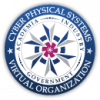Cyber-Physical Systems Virtual Organization: Active Resources
The Cyber-Physical Systems Virtual Organization (CPS-VO) was founded by NSF in 2010 to: (i)facilitate and foster interaction and exchanges among CPS PIs and their teams; (ii) enable sharing of artifacts and knowledge generated by the projects with the broader engineering and scientific communities; and (iii) facilitate and foster collaboration and information exchange between CPS researchers and industry. During the last five years, the CPS-VO has become the focal point of the CPS community in the US and it has played a significant role in catalyzing CPS research world-wide. The CPS-VO Portal serves as a central information repository and as a collaboration platform for the rapidly growing research community. It is the home for ~150 special interest groups, reaches over 8,000 members, and includes over 12,000 webpages and over 18,000 files capturing the first 8 years of CPS history. This proposal looks to envision how the CPS-VO will be transformed over the next years into an resource which becomes a "destination for doing" rather than a repository and collaboration capability.
In this proposal we address the next phase of development of the CPS-VO: (1) changing the Portal from being a passive information
repository and collaboration platform to becoming an active resource as research tool for CPS, (2) serving as an integration platform for open source CPS tools and models emerging from the research community and (3) making the Portal an active resource for CPS education. Active Resources encapsulate the new capabilities of the CPS-VO. Research teams may contribute to Active Resources on three different levels: (a) end-to-end design and simulation tool chains and test beds including model repositories, tools and web-based user interfaces to access resources, (b) individual tools that can be integrated into design flows, and (c) models and code integrated into open repositories. The proposal will spur CPS community growth through conducting series of student competitions to be held in the first two years building on unmanned air vehicle design studio from UPenn that will allow students and researchers to study the physical design, dynamics and control of quad rotors, a multi-model simulation system from Vanderbilt facilitating the virtual integration of embedded software for control, estimation, planning, and coordinated, dynamic flight of multiple micro air vehicles. In addition, the CPS VO will extend outreach to the community to identify new and emerging VO needs and provide enhanced user experience through redesign of the user facing portal and integration of new information management technologies.
